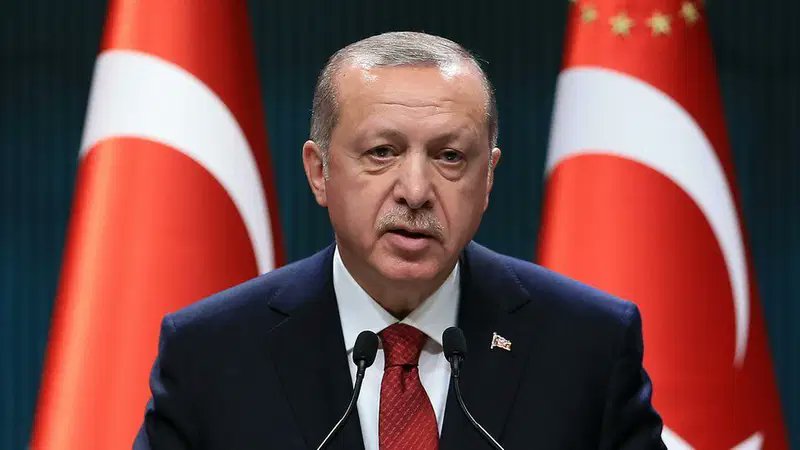
Peter Obi’s Absence at Buhari’s Burial Sparks Northern Backlash

A storm of political and emotional reactions has erupted across social media and within political circles following the conspicuous absence of former presidential candidate, Peter Obi, at the burial ceremony of former President Muhammadu Buhari in Daura, Katsina State. Among the many who have voiced their discontent is political commentator and X personality, @Waspapping, also known as Sarki, who criticized Obi for missing what many consider a pivotal moment in Nigerian political history.
In a post that has since gone viral, Sarki stated, “Peter Obi didn't attend President Muhammadu Buhari's burial. This is the same man who expects northerners to hand over Nigeria to him. Let's see how he plans to become president without our votes.” The post triggered a flood of comments, shares, and heated debates online, exposing once again the deep-rooted regional and political divides in Nigeria’s democratic landscape.
Peter Obi, who ran under the Labour Party in the last presidential election, had steadily built his image as a unifier, a technocrat with national appeal, and a visionary hoping to break away from the traditional political establishment. His perceived snub of the solemn ceremony in Daura has now raised critical questions about his political strategy, especially in terms of winning the trust and support of the Northern electorate—a region often considered the kingmaker in national elections due to its significant voting power.
Supporters of the late Buhari, especially from the North, view Obi’s absence not just as a political misstep, but a moral failing. To many, Buhari was more than just a former president—he was a symbol of Northern pride, discipline, and a bridge between the military era and democratic governance. Failing to attend his burial, critics argue, sends a message of indifference and political detachment that may cost Obi dearly in the future.
Although no official statement has been released by Peter Obi or his media team explaining his absence, the silence has only fueled speculation. Some believe his non-attendance was intentional, an act of protest or political positioning, while others argue that it might have been due to scheduling conflicts or health reasons. In politics, however, perception often overshadows reality, and the current perception is not doing the former Anambra governor any favors.
Across the country, reactions have varied. While some Southern Nigerians have defended Obi, arguing that attendance at a burial should not be a litmus test for patriotism or presidential eligibility, others acknowledge the political implications of his absence. "Leadership is not only about strategy and ideas. It’s also about empathy and symbolism," one political analyst noted. "Showing up, especially during moments of national grief, sends a powerful message."
Northerners, particularly those aligned with the political legacy of Buhari, have expressed deep offense. Daura, the hometown of the late president, witnessed a large turnout of dignitaries, including former presidents, governors, ministers, and foreign representatives. That Peter Obi, one of the country's most prominent political figures, was missing has been described by many as an insult not just to Buhari but to the entire North.
The political stakes are undeniably high. Nigeria is less than three years away from another presidential election, and the road to Aso Rock is paved with alliances, compromises, and optics. With a large portion of the country’s votes coming from the North, political pundits argue that Obi cannot afford to alienate the region, especially at such a sensitive time. While he had made significant inroads during the last election, winning several states outside his traditional base, observers note that bridging the North-South divide remains his biggest hurdle.
This latest controversy may just widen that gap.
Sarki’s comments underscore the sentiment shared by many in the region. For them, Peter Obi’s campaign message of unity and inclusion now rings hollow. “You say you want to lead all Nigerians, but you couldn’t show up to pay respects to one of the most important northern leaders? That’s not how you build trust,” said one northern youth leader during an interview in Kano.
While the online conversation rages, the political fallout may extend beyond the digital space. Opponents are already using the narrative to reinforce the idea that Obi lacks national appeal and understanding of Nigeria’s complex ethnic and political dynamics. It is unclear how the Labour Party will navigate this terrain, but silence may no longer be an option. With the North feeling slighted and the South caught in between sympathy and defense, the once favorable perception of Peter Obi’s “people’s campaign” is showing signs of fragility.
Observers suggest that Peter Obi must act swiftly to clarify his absence, preferably with a public statement or visit to Daura to pay his respects to the Buhari family. Failure to do so may harden public opinion and damage his standing beyond repair, particularly among swing voters who value character and respect for tradition as much as competence.
In Nigeria’s high-stakes political theater, every action—or inaction—has consequences. Attendance at events, especially those tied to national figures, often carry symbolic weight far beyond the moment. Peter Obi’s absence has now become a talking point, a test of his political instincts and emotional intelligence.
As Buhari is laid to rest in his beloved hometown, the political dust kicked up by his burial may take much longer to settle. Whether Peter Obi can recover from this stumble and regain lost ground in the North remains to be seen. What is certain, however, is that in the game of optics and public perception, even a missed burial can become a missed opportunity—one that may haunt a political campaign for years to come.


